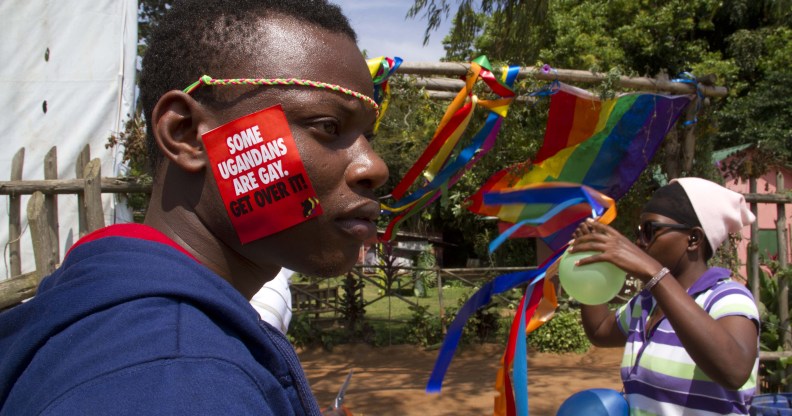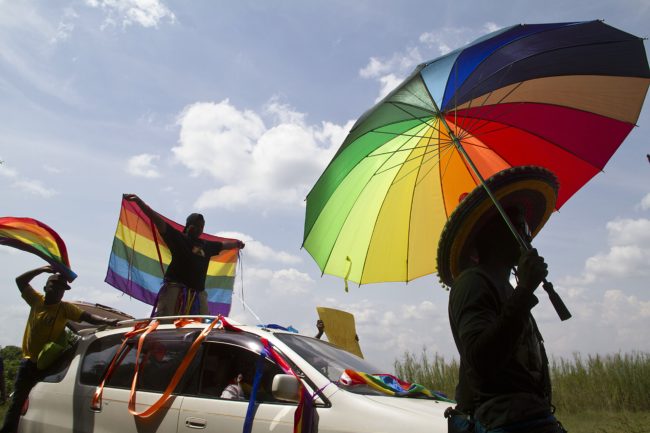Ugandan youth worker says being unemployed makes young men gay

ISAAC KASAMANI/AFP/Getty
A youth worker in Uganda has suggested that being unemployed makes young men gay.
Ishahak Mugema also said he wants the government to open more factories for youths to work in, and suggested that this would keep young people away from same-sex activity.
Mugema made the controversial comments in The Observer, a Ugandan newspaper. In the same article, he also said he believes young people are being “recruited” into the gay community.
Mugema – who is the youth councillor for the Luweero district – also said that a decay in moral values was making young people gay.
The comments were made in relation to a study completed by the Makerere University school of public health which looked at rates of homosexuality in one town.
33 young people in the town reported that they had engaged in same-sex sexual activity in the study, which was conducted in June.
Uganda: A tense environment for LGBT+ people
Homosexuality is still illegal in Uganda, meaning life can be extremely difficult for LGBT+ people there.
In 2009, Uganda tried to introduce the death penalty for gay people. The legislation became known as the “Kill the Gays” bill.
The anti-gay law was eventually passed in 2014 with the death penalty provision taken out and replaced with life imprisonment.

ISAAC KASAMANI/AFP/Getty
However, Uganda’s constitutional court struck the law down soon after on procedural grounds.
Since the law was struck down, MPs in the country have demanded that it be brought back, claiming that homosexuality is “un-African.”
Student ‘tortured to confess gay sex’ in Uganda
Just last month, Uganda made headlines across the world after it emerged that a student had been beaten and burned with a flat iron until he confessed to having gay sex.
He was then expelled from his school as a result of his admission.
The child was studying in senior one – a year group for 13 and 14-year-olds – at St Mary’s College Kisubi in Central Uganda when he was attacked by older students.
At the time, his uncle told The Observer that he had been beaten “thoroughly” and forced to write three confession letters.
“It is well documented that Britain forced anti-gay laws to Uganda, meaning it is homophobia which is un-African or un-Ugandan, not homosexuality.”
– Edwin Sesange, African Equality Foundation
“Our boy did not get words off head; whatever his tormentors said is what he put in writing.”
Anti-gay laws
Speaking to PinkNews last April, Edwin Sesange of the African Equality Foundation said it was sad to hear members of parliament “completely ignoring the historical facts of Uganda.”
“It is well documented that Britain forced anti-gay laws to Uganda, meaning it is homophobia which is un-African or un-Ugandan, not homosexuality.
“I appeal to them to start reclaiming the traditional values of Africa like love for all, non-discrimination, among others which were eroded by the foreign discriminatory sodomy laws.
“I love their energy but I am sure it can be used to tackle corruption, unemployment, declining medical services among others which are claiming lives in Uganda.”
Life in Uganda is extremely challenging for LGBT+ people, who face significant discrimination and violence.
Just last month, the first LGBT+ centre in Uganda was deemed illegal by the country’s minister for ethics and integrity, Simon Lokodo, who said homosexuality was “completely unacceptable.”

